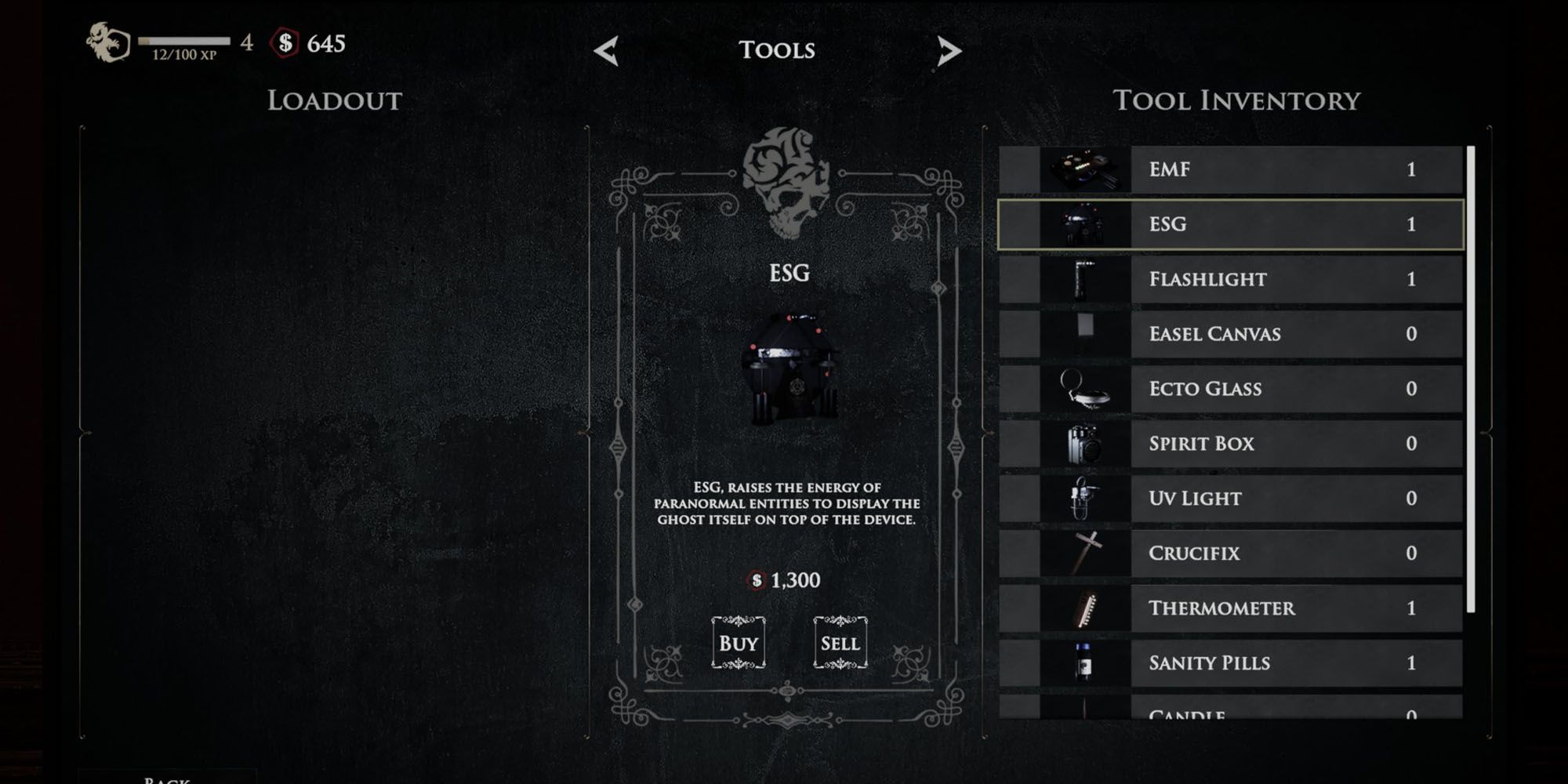[ad_1]
In Demonologist, players enter haunted houses with the goal of exorcising the house and ridding the ghost within it. The ESG device is one of the many tools you have available to figure out what kind of ghost is haunting the house. Unfortunately, the ghost can only be exorcised after it’s been identified by all the players in the group.
The ESG is Demonologist’s take on Phasmophobia’s Dots Projector. Because so many ghosts respond to the ESG device, knowing how to use it will increase the likelihood that the run will succeed. However, it isn’t as intuitive for some of the items, like the easel or the thermometer, and it isn’t helpful until the haunted room is identified since it requires constant monitoring.
Where To Place The ESG Device In Demonologist
After finding the room with the most ghost activity, place the ESG in the area in the most concentrated area. Placing items in Demonologist is still awkward since it is in early access, but it doesn’t matter which direction you think the item is facing because it will activate regardless. A figure will briefly appear above the ESG, but it disappears so quickly that it’s difficult to catch the ghost above it unless someone watches the device constantly. Seeing any figure above counts as ESG evidence.
The device draws ghosts to it, which will decrease the sanity of players within the area over time. To counteract the sanity drain, turn on the lights or pop sanity pills to raise your sanity, like in Phasmophobia. The pills aren’t cheap, though. Although it seems rough, the player who should stay near the ESG is the player who made the lowest economic contribution to the group’s total equipment loadout. Almost all the items in Demonologist cost over $1000, with the average being closer to $1300. Therefore, bringing extra equipment into the game is expensive, and you lose your equipment if you die.
Warning: Standing directly next to ghosts quickly lowers sanity.
The ESG can also make a unique noise when activated, similar to a low, distorted bass sound. After connecting the noise to the ESG after having seen it activate, you can probably identify that the ESG has been activated once you hear the noise, even if you happened to look away during that moment. Of the many ghosts featured in Demonologist, eight use ESG as evidence for correct identification.
- Iblis: a talkative ghost that uses words the other ghosts do not.
- Deogen: a ghost that chooses one target out of a group and is more likely to hunt that player than the others.
- Naahmah
- Guipo
- Jinn: a ghost that lowers sanity when it throws objects. It is more likely to interact with objects than other ghosts.
- Goryo: a rare ghost that doesn’t interact with the ESG device when players are nearby.
- Boogey
- Yurei: a ghost that hunts more frequently when players travel in groups.
While Demonologist is practically a clone of Phasmophobia, it has the potential to be a better game if it continues to be fleshed out in early access. It was developed on Unreal Engine 5 and isn’t as glitchy or unstable as Phasmophobia despite being more visually impressive. Demonologist also runs better on lower-end computers and laptops, making it more accessible for casual and social gamers. Plus, you can buy new clothes and change your hairstyle.
[ad_2]
Source link

